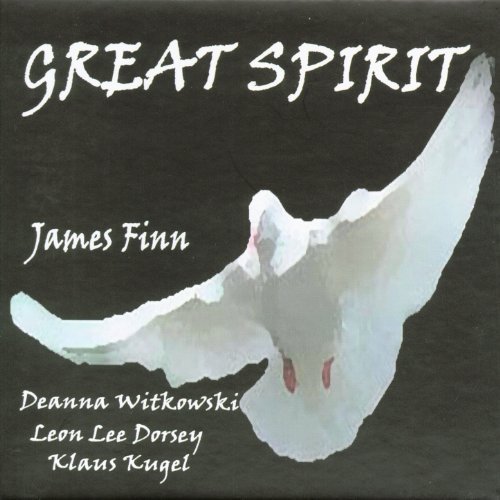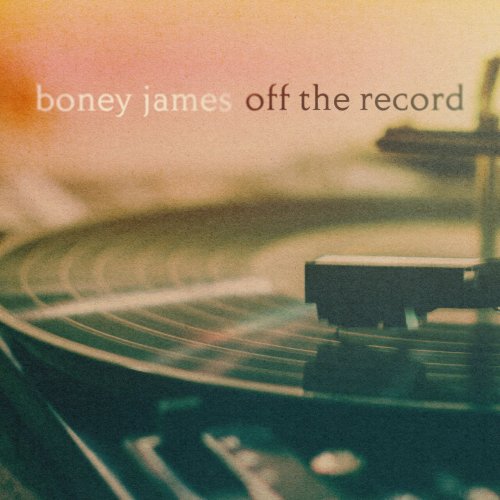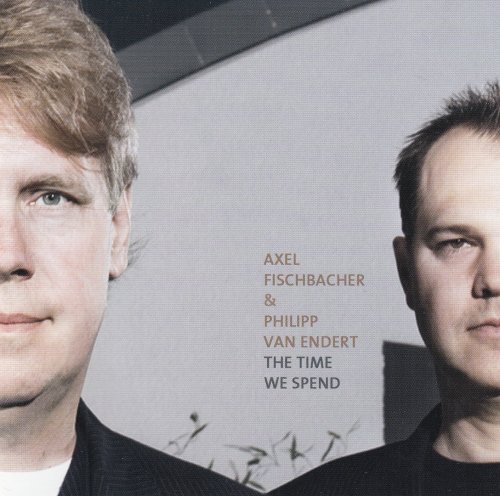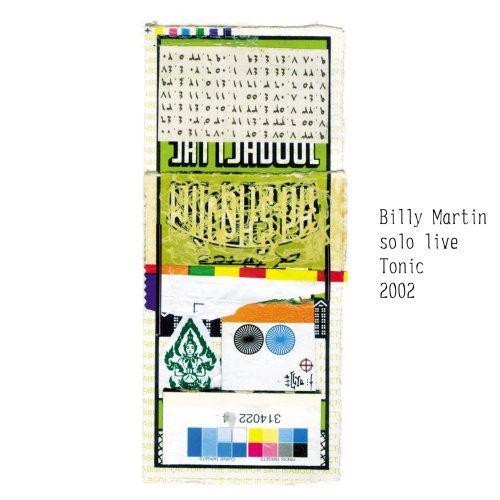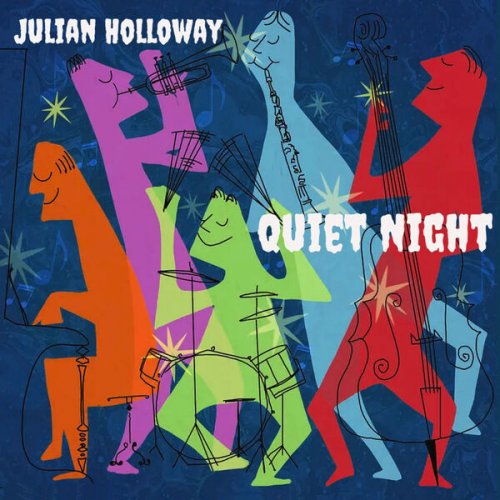Angel Recasens, La Grande Chapelle - El Vuelo de Icaro (2011)
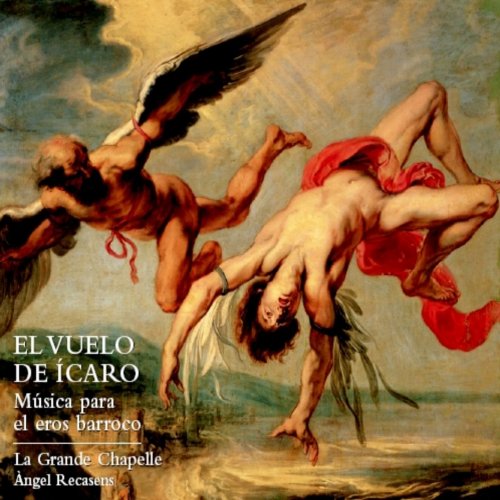
Artist: Angel Recasens, La Grande Chapelle
Title: El Vuelo de Icaro
Year Of Release: 2011
Label: Lauda Música
Genre: Classical
Quality: flac lossless (tracks) +Booklet
Total Time: 01:07:20
Total Size: 294 mb
WebSite: Album Preview
TracklistTitle: El Vuelo de Icaro
Year Of Release: 2011
Label: Lauda Música
Genre: Classical
Quality: flac lossless (tracks) +Booklet
Total Time: 01:07:20
Total Size: 294 mb
WebSite: Album Preview
01. Manuel Correa: Oigan los Que Amantes Viven
02. Anónimo: Alas de Cera-Aunque Maten Tristezas
03. Mateo Romero: Icaro-Pensamiento Dichoso
04. Anónimo: Icaro: Aunque Maten Tristezas
05. Joan Baptista Cabanilles: Icaro-Tocata de Mano Izquierda, 5 Tono
06. Anónimo: El Sol-Esto Es Amor, Quien Lo Probó Lo Sabe
07. Manuel Machado: El Sol-Siempre Pintan a Icaro
08. Anónimo: El Vuelo -Atiende Mariposa
09. Manuel Correa: El Vuelo-para Qué Quiero la Vida ?
10. Bernardo Murillo: El Vuelo-por Hacer Mudanzas Gila
11. Anónimo: El Vuelo-Tres Versillos, 2 Tono
12. Anónimo: El Vuelo-No Me Lo Recuerde el Aire
13. Sebastián Duròn: El Vuelo-Vuelo de Amor
14. Anónimo: La Caída-Derrita el Sol las Atrevidas Alas
15. Joan Baptista Cabanilles: La Caída-Tiento de Falsas, 1 Tono
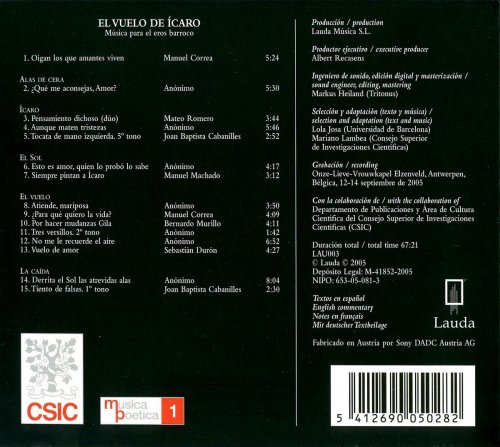
There is no period in the history of world literature in which more was written about love and of a higher quality than during the Golden Age, and Spanish baroque poetry is perhaps its most extreme expression. The most inspired Spanish poets wielded their pens, writing the most poignant verses about one of the most enduring themes of human existence. In doing so, they often turned to the lyrical mask of Icarus, Daedalus’s foolhardy, young son, who disregarded his father’s warnings and risked drawing too near to the sun, causing the wax of his wings to melt and converting his flight to freedom into death.
Icarus was one of the quintessential myths of the Baroque eros and by merely alluding to love, poets managed to summarise man’s whole destiny: the ascent and the fall. Thus, the succession of images and references to the myth should be interpreted as metaphors: the lady is the sun, his desire is the wings and the poetic “I” is the new Icarus, who in his flight of love dares to fly so high that he has the audacity to hope for the favour of the lady, who with cruel disdain pushes him headlong to desperation and the death of love.
Just as poets were attracted to this subject, the most highly acclaimed and prestigious Spanish composers of the era –active in the courts of Philip III and Philip IV– put their musical inspiration at the service of the most beautiful poems. Apart from the inevitable anonymous works, the recording also includes music by Manuel Correa, Bernardo Murillo, Sebastián Durón, Mateo Romero (Maestro Capitán) and Manuel Machado.
In short, Icarus marks the poetic and musical journey that has been used to create an original argument that sings the praises of love in its many guises. The order of the works recorded was established according to the different sections of the mythical legend of Icarus (“Wings of Wax”, “Icarus”, “The Sun”, “The Flight”, “The Fall”) and which, in turn, refer to a wide array of metaphors and meanings of love during the Spanish baroque.

